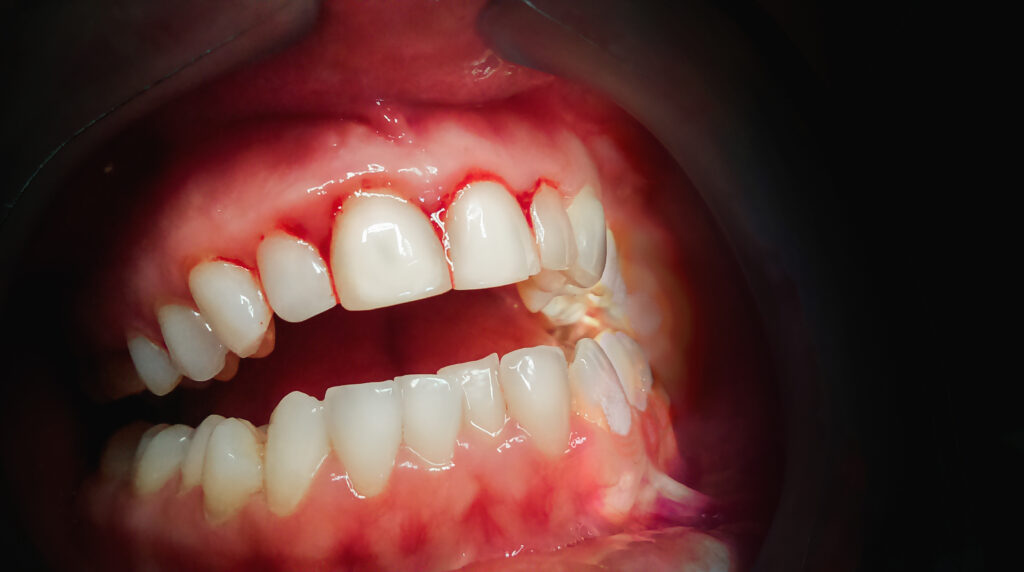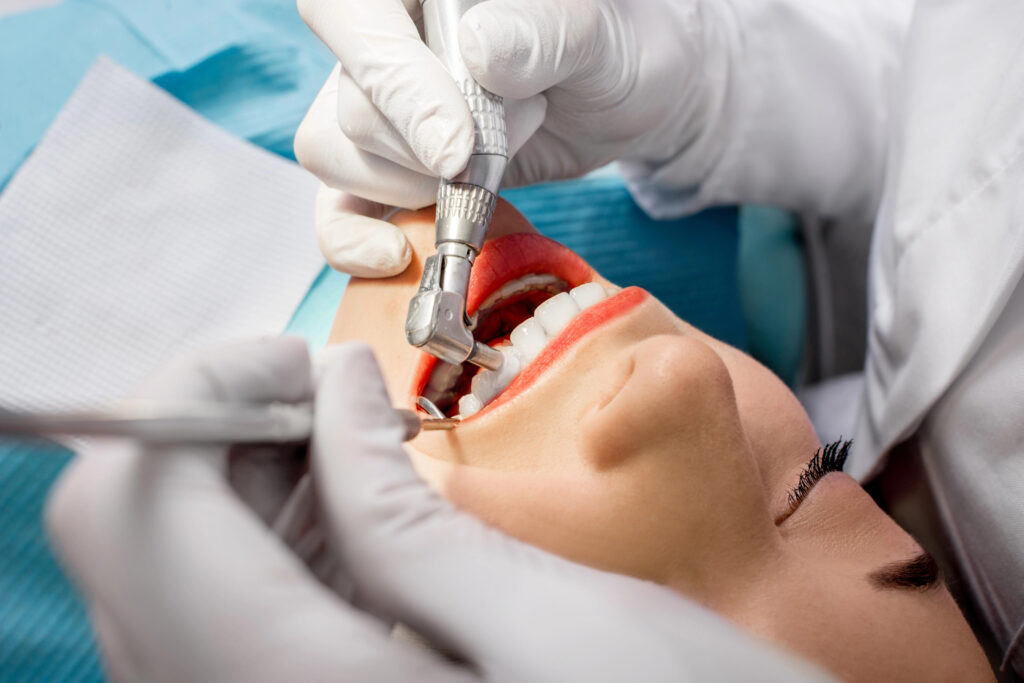Bleeding gums can be an incredibly concerning symptom that many people may experience at some point in their lives. Whether there is a minimal amount of blood on your toothbrush or you are experiencing significant bleeding during flossing, it is essential to understand the potential causes and seek appropriate treatment. But identifying the cause may not be so simple.
At Jenson Dental, our team understands how concerning it can be to deal with bleeding gums, especially if you have never dealt with this problem before; and if you aren’t sure what is causing this problem, it may be difficult to treat and prevent further bleeding. If your gums have started to bleed and you aren’t sure why or how to treat them, keep reading to learn how your dental team can help.
Signs You Have Healthy Gums
By being able to identify healthy gums, you should be able to determine where you are in your oral health journey and identify potential issues early on. Some of the most common signs of healthy gums include:
- Pale to pink color
- Firm tissue
- No bleeding
- Little to no sensitivity
Bleeding gums are the most significant sign that there is something wrong with the tissue. But what exactly is causing your gums to bleed, and how can you address it so your gums are healthier?
Why Do You Have Bleeding Gums?
If you are experiencing bleeding gums, there are a few common causes. Some of the most common reasons why your gums are bleeding may include:
- Gingivitis: This is one of the most common causes of bleeding gums. Gingivitis is a plaque buildup on the teeth and gums. If this plaque isn’t removed, it can lead to inflamed gums, causing them to become red, swollen, and prone to bleeding.
- Smoking: Tobacco use is incredibly irritating to your gums, impairs your blood flow, and compromises your body’s ability to fight off infections. As you continue to use tobacco products, you may find yourself dealing with gum disease and consistent bleeding.
- Bleeding Disorders: Bleeding disorders can lead to bleeding gums due to impaired blood clotting mechanisms. Individuals with these conditions may experience prolonged or excessive bleeding from even minor gum trauma or routine dental procedures.
- Hormonal Changes: As you experience hormonal fluctuations during periods such as puberty, pregnancy, or menopause, your gums may become more sensitive and prone to bleeding.
- Ill-fitting dentures: if your dentures don’t fit properly, they can cause irritation and friction against your gums, leading to tissue inflammation and eventual bleeding.
While many of these may be the cause of your bleeding gums, it is best to speak to your dentist to specifically pinpoint what the cause is. By assessing your oral health and discussing your current oral health routine, they should be able to clearly
How Your Dentist Can Help with Bleeding Gums
If you are experiencing bleeding gums, a good first step towards achieving a healthier mouth is scheduling an appointment with your dentist. They can assess your current oral health, determine any underlying causes of the bleeding, and create a recommended treatment plan. Depending on the severity of the problem, they may recommend the following treatments:
- Professional Cleaning: One of the best ways to begin addressing bleeding gums is by scheduling a professional cleaning. At a dental cleaning, your dental team removes plaque and tartar buildup, which can help reduce inflammation and bleeding.
- Scaling and Root Planing: If your gum disease is more advanced, your dentist may recommend scaling and root planing. This treatment removes plaque and tartar from below the gum line and smooths the tooth’s roots.
- Medications: In addition to recommending dental treatment plans, your dentist may also prescribe an antimicrobial mouth rinse or antibiotic to control any infection and promote healing.
- Education and Advice: During your dental treatments, your dentist may make personalized oral hygiene recommendations and offer tips to improve your brushing and flossing techniques.
Things You Can Do at Home to Treat Bleeding Gums
While professional dental treatments are a great way to address bleeding gums, your at-home routine is just as, if not more, important in treating this problem. If you’re already attending regular dental visits to address gum disease, consider incorporating the following into your at-home routine to enhance your professional treatments:
- Brush and Floss Regularly: Maintaining a consistent oral hygiene routine by brushing and flossing your teeth twice a day is essential for removing plaque and food particles. You should opt for a soft-bristled toothbrush to avoid irritating your gums and causing further bleeding.
- Salt Water Rinse: If your gums are bleeding, you should consider incorporating a salt water rinse into your routine. This rinse should be done at least three times a day to help draw out excess fluid and treat infection.
- Eat a Balanced Diet: Your diet plays a significant role in your gum health. By consuming a diet rich in fruits, vegetables, and whole grains, you ensure you are getting essential vitamins and minerals to care for your gums.
- Give Up Tobacco: If you use tobacco products, quitting can significantly improve your gum health and reduce your risk of bleeding gums and gum disease.
Caring for Your Gums at Jenson Dental
Whether you are dealing with bleeding gums or you are ready to schedule regular dental checkups, it is essential that you work with a reliable dental team, like our team at Jenson Dental. With years of experience helping patients across the Brigham City area achieve a healthier smile, we are confident that we can do the same for you.
From dental cleanings and cosmetic dentistry procedures to dental implants, dentures, and more, our team provides a variety of dental services to help you achieve the smile of your dreams. If you would like to schedule an appointment with our team to discuss your gum health or you have questions for us, don’t hesitate to contact us today.
[author_info]



